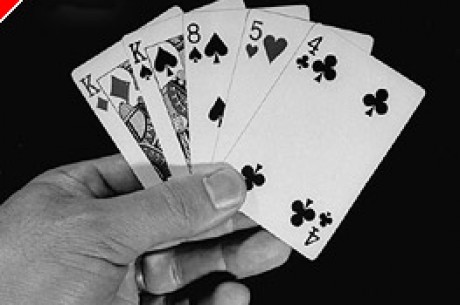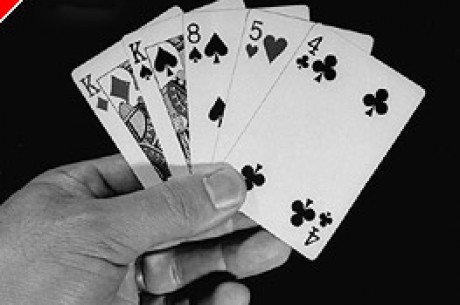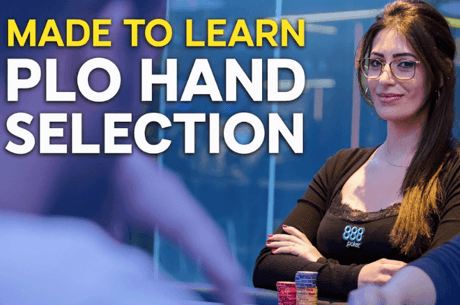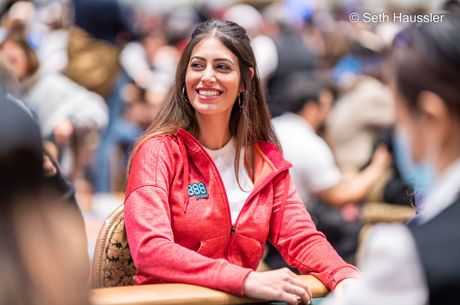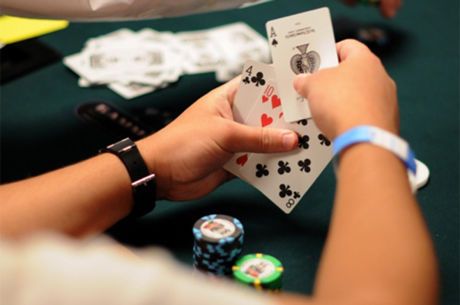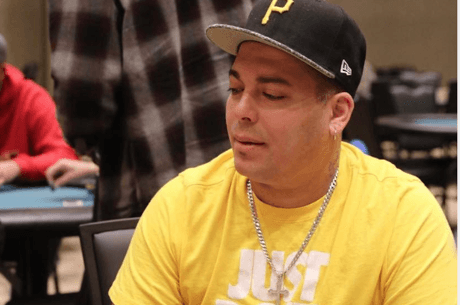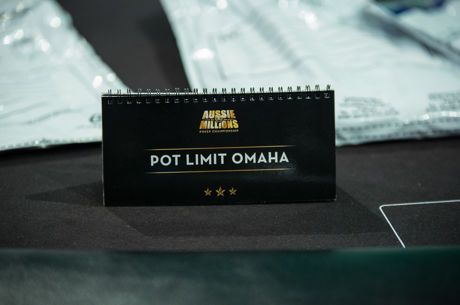Talking Omaha Poker - Weaknesses and Patterns
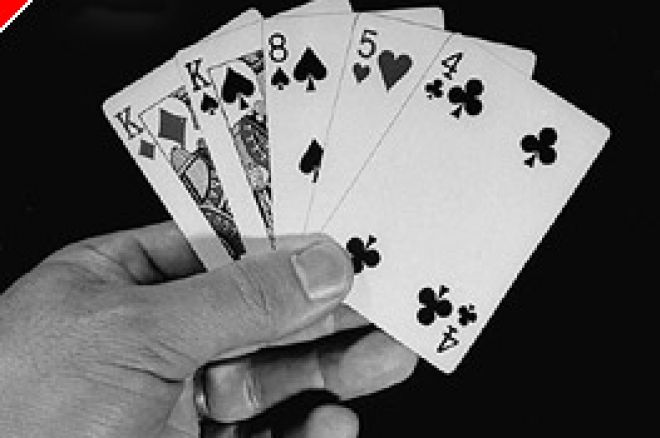
I have said previously that I tend to prowl around the lower stakes Omaha cash tables in the online world simply because I can get regular games at rooms less well populated than the big sites. At those levels I also expect to be up against a mix of players from the canny regulars who can play a little and need to be watched, to the perennial poor players and newcomers who will usually donate their cash in the right situation for me. Overall it is a steady earner, if not spectacular, and low risk to a limited budget. This is good news for most players who are not able to afford to bear the variation swings at higher levels.
While playing this week, I was reminded of different situations that arise time and again which prove profitable to the one exploiting it and distinctly expensive for the one making the mistake. I thought I would share a couple of these with you.
There is no doubt that one of the useful aspects of Omaha poker is that many players who arrive at a table do so on an occasional basis having spent the majority of their online play at Texas Hold'em tables. This becomes obvious when you see the types of hands they show down at the end.
Also, because they let their hands drift to the river, they are also giving away their lack of understanding at an early stage. From then on, you know they are the kind of player to call you down with weak hands even though you might be a little concerned after making a pot bet at the turn with a drawing hand hoping for a fold, only to be called!
If I were to analyse my play, I would safely say that my opponents rarely see my cards unless I think I have a decent chance of winning or I have been given a cheap opportunity to call on the end, despite believing I have lost. You will be surprised at the times the small bet to you labels their own hand as weak. It is as though they are saying "Hmmm, I don't have a lot but if I check I am giving it up, yet if I bet the pot, I am likely to be called and lose a lot of dollars, so I will make a small bet and hope he folds".
I saw one such situation earlier today. A late position player had pot re-raised a bet before the flop and the early position player who had first bet out called the re-raise. Perhaps the re-raiser had AAxx, who can say at this point? The flop came down K-rag-rag and this didn't seem to impress either of them as they both checked (or perhaps someone was slow-playing). Whatever, the case, this seemed to swing the initiative to the early position player who must have expected a big bet after the flop from his opponent in position.
The turn (another rag card) also resulted in a checked round. The river came down another K and the early position player delayed and then bet a small sum worth about 20% of the pot. I said to myself, the other player must call this. It is very cheap and suggests either the guy has a K and is trying to extract a bet, or has very little but is afraid to bet big to take down the pot. If you have AAxx, it is a cheap call at odds of 6/1 into the pot, especially as many players at these levels will bet the pot if they make a set or full house on the end.
The player folded and his opponent proudly showed a busted draw. The loser would have won his 6/1 bet.
I do not know whether the player who folded actually held AAxx or not. If he did, his nerve failed him on the friendly flop of K-rag-rag. If he did in fact take fright at the K on the end, he probably made a correct lay-down had it not been for the value of the cheap call he could have made. He was sacrificing a pot of 6 times the cost of keeping the first player honest. It was probably a good price to pay.
However, far more often at the Omaha table, I see many players calling any size of bets if they hold AAxx, and I mean "any", whatever the value! The Texas Hold'em instinct kicks in so often that the player simply will not give up the aces.
Three days ago, this hand happened during a hand I was involved in:
I am in early position on a five-handed table and receive KQ96 rainbow. There is a small raise and I call with all the other players (there is often value to call pre-flop at the short-handed tables with such "promising if unspectacular" hands). The flop comes down a satisfying QQ6 with 2 diamonds. I do not have a flush draw but it isn't important as I have flopped a full house!
As the pre-flop pot is small, I decide to bet out the pot and one player called me. The turn is 5c, so no flush has been made and my Q6 is still the nut hand. Nevertheless, I decide I do not want to give a cheap entrée to someone holding, as I believe very likely, a Q with a card higher than a 6, and making a bigger full house on the river. I therefore bet the pot again which is enough to put my opponent all-in should he decide to call.
He is undeterred and calls. Now all I can do is await my fate and hope he does not catch his card on the river. It comes down 4h and I know I am safe or, at the worst, split with another Q6. The player loses the pot and is kind enough to show me that he held AAxx with the rags having no bearing on his betting. I have to assume he showed me the hand to make me think I was in some way lucky. Well, I was with the flop but then I had not committed much in the way of cash and was unlikely to have done so unless the flop hit me squarely between the eyes. That is the whole point of the pre-flop value bet - if I miss a strong flop, I get out with little cost, but the upside can be very good potentially financing twenty or more value bets of the future.
Where was my opponent's value? He had been presented with a flop of two queens and, armed with that information, saw that one of the other four opponents decided to lead the betting in a strong fashion. Yet, he failed to register that his opponents had, between them, sixteen cards - a third of the deck that he could not see - any one of which might be one of the two other queens (an odds-on chance). This must be true because he proceeded to blow his whole stack calling with two aces, needing to see one of them on the last two cards to be upturned.
One of two things happened here. He either could not see beyond his two aces or he stubbornly believed I was on a major and quite outrageous bluffing mission!
I have to say I have long since learned to distrust a pair of aces in Omaha if I cannot get all-in with them before the flop. After the flop, they rarely present a pretty picture in the face of several callers unless my other two cards are suited and connected.
Until next time!
TB
14.4.06
Ed Note: Great Omaha action always at Pacific Poker

